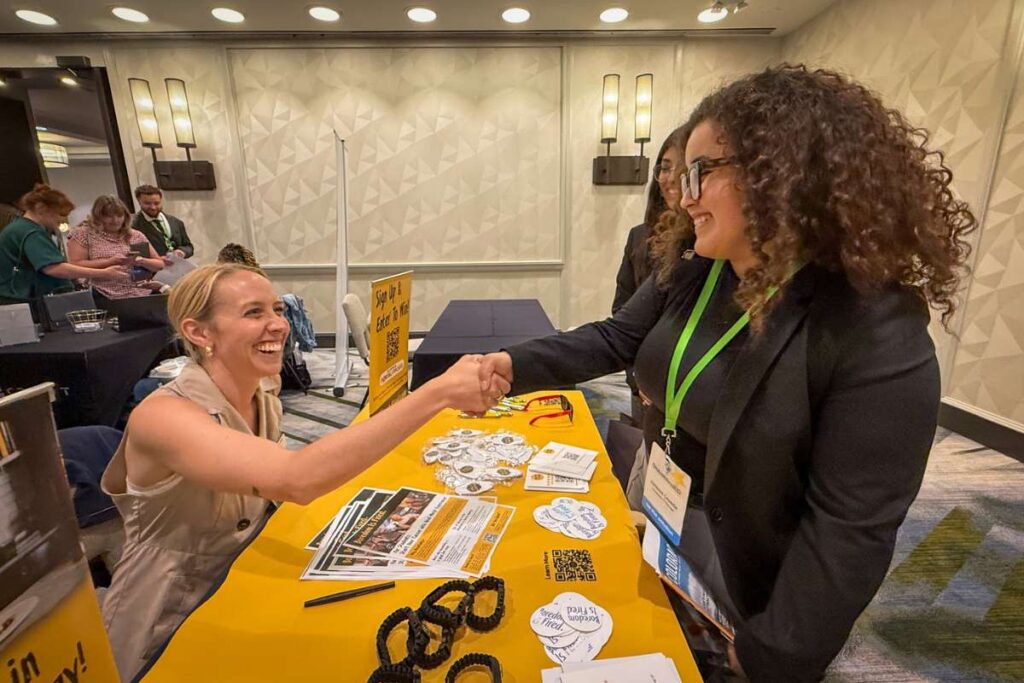In a Denver hotel ballroom filled with opportunity, first-generation college students recently stepped out of their comfort zones to attend a job fair, eager to build professional networks and leave lasting impressions. These students were part of the GlobalMindED 11th annual conference, a nonprofit-led initiative focused on bridging the gap between education and employment for those who are the first in their families to attend college.
University of Denver students like Ximena Valencia, a marketing and art major, and Vanessa Cepeda, studying international business, practiced critical networking skills at the event. Valencia, passionate about fashion design, introduced herself to recruiters from luxury hotel brands, while Cepeda confidently delivered her elevator pitch, stressing the importance of preparation.
The conference emphasized the idea of building “social capital”—mentorships, connections, and real-world readiness not typically taught in classrooms. Over three days, students learned how to present themselves, seek out internships, and adapt to a changing job landscape increasingly influenced by artificial intelligence.
A Tougher Market and Fewer Opportunities
While Colorado boasts low unemployment overall, the job market is becoming more competitive. April saw a drop of 33,000 hires in the state, and job openings have nearly halved from two years ago. Layoffs in tech, government, and other sectors—combined with AI disruptions—have intensified the struggle, especially for young job seekers.
Carol Carter, founder of GlobalMindED, noted that first-generation students face additional challenges, such as a lack of access to professional networks and fewer role models in high-paying fields. Competing with experienced workers laid off in mid-career, young grads must go beyond grades and résumés to stand out.
The key, Carter says, lies in interpersonal and leadership skills. Employers today seek individuals with initiative, resilience, and the ability to collaborate. “Strong human capacity is how we outperform AI,” she said, encouraging students to seek promotions at part-time jobs or join campus organizations to build leadership credentials.
Despite these challenges, many first-gen students display remarkable resilience. JJ Mendez, a pre-law student, has worked multiple jobs just to stay in school, while Cepeda applied for 60 scholarships during her senior year to afford college. These stories of persistence are exactly what employers value.
Mentorship as a Catalyst for Change
Mentorship has been a game-changer for students like Brian Ysasaga, now a systems engineer at Lockheed Martin. Once a hesitant participant at an industry event, Ysasaga was encouraged by Carter to stay and connect. Through GlobalMindED, he gained mentors who guided him through résumé writing, networking, and career planning.
His journey—from a childhood of instability to a professional role in aerospace—is proof of what structured support can do. GlobalMindED, he said, taught him “everybody belongs,” even in fields where diversity is lacking.
Back at the job fair, Cepeda put her learning into action. From weaving her psychology background into marketing conversations to chatting about books with recruiters, she focused less on job offers and more on leaving a memorable impression.
“I’m trying to have them remember me,” she said, “not for what’s on my résumé, but for being myself.”

